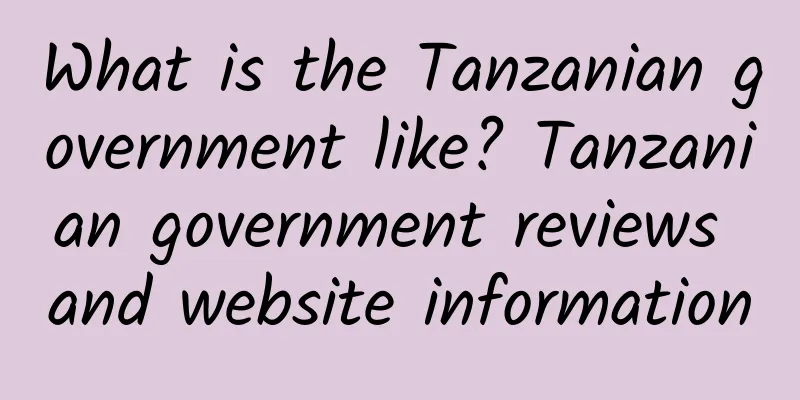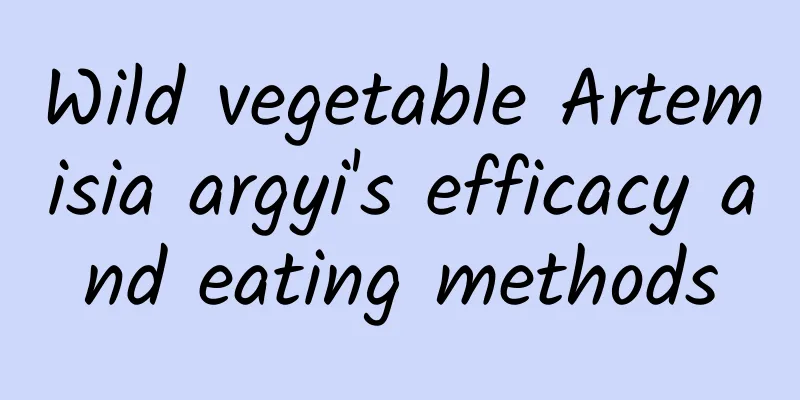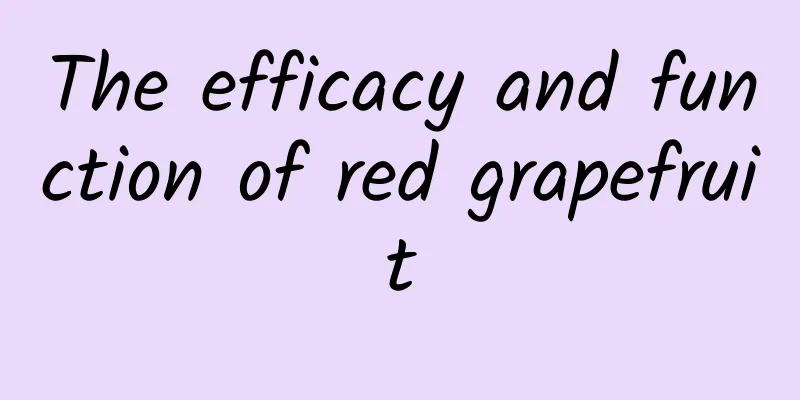What is the Tanzanian government like? Tanzanian government reviews and website information

|
What is the Tanzanian government website? This website is the official website of the Tanzanian government. It mainly provides information about Tanzania, government agencies, functions, national policies, public services, government news, etc. The website language is English. The United Republic of Tanzania (abbreviated as Tanzania) is located in eastern Africa. Its capital is Dodoma and its seat of government is Dar es Salaam. Its official languages are Swahili and English. It implements a presidential system. The president is the head of state, head of government and commander-in-chief of the armed forces. Website: www.tanzania.go.tz The Tanzanian Government website (www.tanzania.go.tz) is the official website of the United Republic of Tanzania, which aims to provide the public with comprehensive information about Tanzania. The website covers a wide range of content, from national profiles to government agency settings, functional profiles, national policies, public services, and government news. As the official portal of the Tanzanian government, it not only provides local citizens with a convenient channel to obtain government information and services, but also provides an authoritative window for the international community to understand Tanzania's political, economic, cultural and social dynamics. Tanzania OverviewTanzania is located in eastern Africa, bordering the Indian Ocean to the east, Kenya and Uganda to the north, Rwanda, Burundi and the Democratic Republic of the Congo to the west, and Malawi, Mozambique and Zambia to the south. With a land area of approximately 945,000 square kilometers, it is one of the largest countries in Africa. The capital of Tanzania is Dodoma, but the main government offices and many national institutions are still located in Dar es Salaam, which is the largest city and main economic center of Tanzania. Tanzania's official languages are Swahili and English. Swahili is the national language of Tanzania and is widely used in daily communication and official occasions, while English is mainly used in education, business and government documents. This bilingual policy gives Tanzania a unique advantage in international communication and domestic governance. Tanzania's political system is a presidential system. The president is both the head of state, the head of government and the commander-in-chief of the armed forces. The president is elected by popular vote for a five-year term and can be re-elected once. Tanzania's political system is based on a multi-party system. The main political parties include the Revolutionary Party (Chama Cha Mapinduzi, CCM) and the Democratic Development Party (Chama cha Demokrasia na Maendeleo, CHADEMA). Introduction to the Establishment and Functions of Government AgenciesThe organizational structure of the Tanzanian government includes the Presidential Office, the Prime Minister's Office, various ministries and local government agencies. The Presidential Office is the country's highest administrative body, responsible for formulating and implementing national policies. The Prime Minister's Office assists the President in handling daily government affairs and coordinates the work of various ministries. The main ministries in Tanzania include the Ministry of Foreign Affairs, the Ministry of Finance, the Ministry of Education, the Ministry of Health, the Ministry of Defence and National Service, the Ministry of Internal Affairs, the Ministry of Agriculture and the Ministry of Natural Resources and Tourism. Each ministry has its own specific functions and responsibilities, for example, the Ministry of Foreign Affairs is responsible for international relations, the Ministry of Finance is responsible for national fiscal and economic policies, and the Ministry of Education is responsible for the planning and management of the education system. Local government bodies are responsible for implementing national policies at the local level and providing public services to citizens. Local governments in Tanzania are divided into provinces, counties, districts and villages, each with specific responsibilities and powers. National policies and development plansThe Tanzanian government's national policies and development plans aim to promote economic growth, social development and environmental protection. In recent years, the Tanzanian government has launched a series of important policies, including the National Development Vision 2025 and the Five-Year Development Plan. The National Development Vision 2025 is Tanzania's long-term development strategy, which aims to build Tanzania into a middle-income country and achieve economic prosperity, social harmony and environmental sustainability by 2025. The vision emphasizes the priority development of industrialization, agricultural modernization, infrastructure construction, education and health care. The Five-Year Development Plan is a specific action plan formulated by the Tanzanian government to achieve the National Development Vision 2025. The plan covers all aspects of economic growth, social development and environmental protection, and defines the government's specific goals and implementation measures in various fields. Public Service and Government NewsThe Tanzanian government website provides citizens with a wealth of public service information, including education, medical care, social security, employment, taxation, and business registration. Citizens can obtain relevant policy information, application forms, and service guides through the website, and submit applications online or check the progress of processing. In addition, the Tanzanian government website also regularly publishes government news, including important speeches by the president and prime minister, government meeting minutes, policy documents, laws and regulations, etc. This information not only provides a channel for the public to understand the dynamics of government work, but also provides an authoritative source of information for the media and research institutions. Tanzania's Economy and Natural ResourcesTanzania is one of the countries with the richest natural resources on the African continent, with vast agricultural land, rich mineral resources and unique tourism resources. Agriculture is the pillar industry of Tanzania's economy, and its main agricultural products include coffee, cotton, tobacco, tea and cashew nuts. Tanzania's mineral resources are also very rich, and its main mineral products include gold, diamonds, tanzanite, coal and natural gas. In recent years, the Tanzanian government has vigorously promoted the industrialization process, actively attracted foreign investment, and developed the manufacturing and processing industries. Tanzania's tourism industry has also developed rapidly, attracting a large number of international tourists to visit. Tanzania's tourism resources include the world-famous Serengeti National Park, Mount Kilimanjaro and Zanzibar Archipelago. Tanzanian Culture and SocietyTanzania is a multi-ethnic country with more than 120 ethnic groups. The ethnic groups live in harmony and form a unique cultural diversity. Tanzanian culture is mainly based on Swahili culture, but also incorporates elements of foreign cultures such as Arab, Indian and European. The widespread use of Swahili as the national language has further promoted exchanges and integration among ethnic groups. Tanzania's social structure is based on family and community, and traditional values such as respect for elders, solidarity and mutual assistance, and hard work and thrift play an important role in social life. Tanzania's religious beliefs are also diverse, with major religions including Christianity, Islam and traditional religions. Tanzania's International RelationsTanzania pursues an independent foreign policy, actively participates in international affairs, and is committed to maintaining peace and development in Africa and the world. Tanzania is an important member of regional organizations such as the African Union, the East African Community and the Southern African Development Community, and plays an active role in these organizations. Tanzania maintains good diplomatic relations with China, the United States, the United Kingdom, India and other countries, and has carried out extensive cooperation in the fields of economy, culture, education, etc. The Tanzanian government also actively participates in discussions and cooperation on global issues such as international counter-terrorism, climate change and sustainable development. Education and technology in TanzaniaThe Tanzanian government attaches great importance to the development of education and science and technology, and regards them as important pillars of national development. Tanzania's education system includes three levels: basic education, secondary education and higher education. Basic education is compulsory education, covering primary and junior high school stages, and its goal is to improve the cultural quality and basic skills of the entire population. Tanzania's higher education institutions include the University of Dar es Salaam, the University of Dodoma and the Nelson Mandela African Institution of Science and Technology, etc. These institutions of higher education play an important role in cultivating talents, promoting scientific and technological innovation and promoting social development. The Tanzanian government also actively promotes scientific and technological innovation and encourages scientific research institutions and enterprises to conduct technological research and development to improve the country's scientific and technological level and competitiveness. Tanzania's science and technology policy focuses on innovation and development in the fields of information technology, biotechnology, energy technology and environmental protection. Healthcare in TanzaniaTanzania's health care system includes public hospitals, private hospitals and community health service centers. The Tanzanian government is committed to improving the coverage and quality of health care services, especially in rural and remote areas. In recent years, the Tanzanian government has made a series of important progress in the field of health care, including expanding the scope of vaccination, improving maternal and child health care and controlling the spread of infectious diseases. Tanzania's medical and health policy emphasizes the principle of prevention first and treatment second, and focuses on improving the public's health awareness and hygiene habits. The Tanzanian government also actively cooperates with international organizations and foreign governments to introduce advanced medical technology and equipment to improve the country's medical and health level. Environmental protection in TanzaniaTanzania has rich natural resources and a unique ecosystem. Environmental protection is an important issue in the country's development. The Tanzanian government has formulated a series of environmental protection policies and laws and regulations to protect the country's natural resources and ecological environment. Tanzania's environmental protection policy focuses on forest protection, water resource management, wildlife protection and climate change response. Tanzania's national parks and nature reserves are key areas for ecological and environmental protection. The Tanzanian government strives to achieve a balance between economic development and environmental protection by strengthening law enforcement, raising public awareness of environmental protection and promoting sustainable development. ConclusionAs an authoritative official portal, the Tanzanian government website (www.tanzania.go.tz) provides the public with comprehensive information and convenient services about Tanzania. Through this website, the public can learn about Tanzania's political, economic, cultural and social dynamics, obtain government policy and public service information, and participate in the country's development process. The Tanzanian government will continue to be committed to promoting the country's sustainable development, improving citizens' living standards, and promoting social harmony and prosperity. |
Recommend
Two-color cornmeal steamed buns
I don't know if you have ever eaten two-color...
The effects and benefits of eating toon sprouts
Everyone must have eaten Chinese toon sprouts, bu...
The difference between azalea root and sunken wood, what is the function of sunken wood
People who like to raise fish must have heard of ...
What is the American Film Institute? American Film Institute reviews and website information
What is the website of the American Film Institute...
How is J.Front Retail? J.Front Retail reviews and website information
What is J. Front Retailing? J. Front Retailing is ...
Cultivation methods and cultivation precautions of bamboo-jointed begonia
The round and lovely bamboo begonia is very popul...
What are the ingredients of rice water? Introduction to the ingredients of rice water
Rice water is available in every household every ...
The nutritional value of long root mushrooms and the benefits of eating long root mushrooms
Oyster mushroom is an edible mushroom food. Its c...
How to make Sophora japonica porridge
How much do you know about the methods of making ...
Which fruits should not be eaten for breakfast?
Breakfast is the most important meal of the day. ...
The efficacy and method of rose porridge
Speaking of roses, many people will think it is v...
Taro Pork Ribs Congee
It goes without saying that the 598 taro and pork...
The efficacy and function of hairy-leaved philadelphus
Hairy-leaved Philadelphus, also known as mountain...
Miracle fruit's effects and functions, side effects and how to eat it
The miracle fruit is oval in shape. It is green w...
Which vegetables are alkaline?
In today's life, people often hear about alka...









